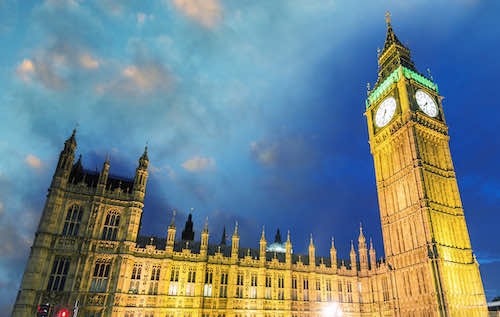The House of Lords voted last night to reject a controversial bill to suspend the Pensions Triple Lock.
Lords sent the bill back to the Commons to be reconsidered.
MPs have already voted in favour of the suspending of the Triple Lock for one year to avoid a potential 8% increase in the State Pension due to an unexpectedly high rise in average earnings, one element of the Triple Lock.
The revolt in the Lords was led by former Pensions Minister Baroness Ros Altmann but critics say the Lords move is likely to fail.
Lord's amendments to the bill to suspend the Triple Lock passed with support from all sides and 220 votes to 178 votes.
Baroness Altmann says rejecting the suspension of the Triple Lock it will retain “vital protection” for next year's State Pensions and also help the poorest pensioners.
She says the amendments will honour the Triple Lock promise and ensure the that the Government’s Manifesto commitments are kept. She believes an alternative to dropping the lock for one year is to adjust earnings data to account for the impact of pandemic measures.
As it stands, if the Triple Lock is suspended, as the Government wants, the State Pension increase will be limited to 3.1% CPI, the current rate of inflation. However the Chancellor has already warned that inflation may average 4% next year which means pensioners’ buying power will decline, believes Baroness Altmann.
Baroness Altmann said: “Pensioners are not a piggy bank for Chancellors to raid when money is tight. They are not a cash machine that the Treasury can take money from when they want to spend on other priorities.
“Pensioners deserve better. They are not all well off. We are already in a cost of living crisis and official forecasts are for inflation to rise to 4% and maybe much more next year and a 3.1% rise, as proposed by this Bill if it had not been amended, is simply too low to protect pensioners as they were promised.”
The amended bill will now return to the Commons where it is likely to be defeated, says Sir Steve Webb, a consultant at actuarial firm LCP and also a former Pensions Minister.
He said: “Even though no government likes being defeated in the House of Lords, sometimes they will consider a concession in order to get their legislation through. But on an issue like this, there seems no prospect of a government concession when MPs are asked to consider the issue again.
“An alternative measure of earnings growth could lead to a multi-billion pound bill which could cause the Chancellor to re-write his Budget. By convention, the House of Commons has supremacy when it comes to financial matters and the Lords will come under great pressure to back down if the Commons simply vote down today’s amendment.
“The Government seems certain to use its comfortable majority in the Commons to overturn this defeat in the House of Lords. But it is a sign that any attempt to drop the Triple Lock for more than one year could meet some stiff resistance.”

